Simplification, Sustainability, and Systems that work for your photography business with Leah O’Connell
How you approach your business and photo sessions doesn’t have to be complicated. And yet, for so many photographers it’s easy to overcomplicate things. Building your business processes for sustainability goes a long way when it comes to creating a business that you love.
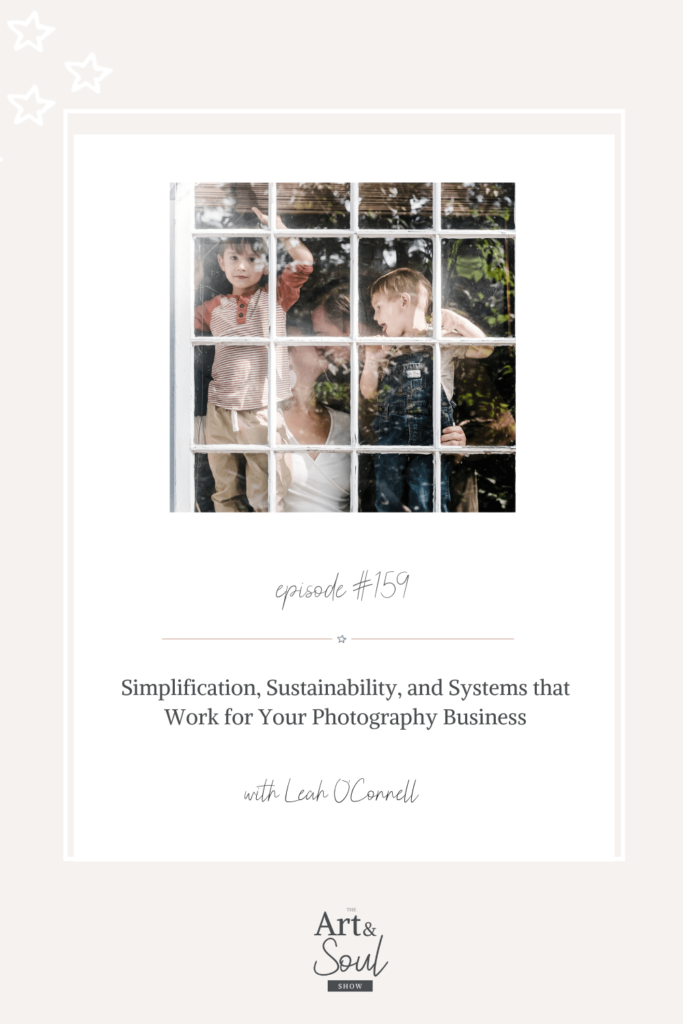
In today’s episode, I’m chatting with Leah O’Connell of Firefly Photography. She’s sharing her approach to sustainable client experiences, how she helps photographers untangle their business processes, how her current business model gives her the flexibility she wants for her family and personal life, and the importance of finding passion in your work.
By putting systems in place that are simple and sustainable, Leah has built a business for herself that brings in six figures with part-time hours. And she teaches other photographers how to build a system that works for their personal and professional needs. If you’re looking to simplify your business, this episode will give you insight on making your work work for you!
What’s in this episode:
- [05:03] How Leah approaches sustainable client experiences, and how photographers have to remember that they’re in charge of making sure they don’t get burnt out
- [10:22] How Leah helps photographers untangle their business processes, how easy it is to make things more complicated, and how it takes intention to simplify
- [17:09] Leah’s advice for getting out of your own way, and how her passion for in-home photo shoots has lead to more authenticity and openness in her photography
- [26:14] Leah’s current business model, how she has simplified and aligned her processes along the way, and how a virtual model allows her to have flexibility
- [34:59] Leah’s advice to new photographers to pay attention to what lights you up
Tune in to this episode with Leah O’Connell to learn how building sustainability and simple workflows can reenergize your business!
SUBSCRIBE: Apple Podcasts | Spotify | Stitcher
If you have a moment, I would be so grateful if you would take a quick moment to leave a review on Apple Podcasts. Your review helps other photographers discover the podcast and also lets me know what content you find most helpful. Thanks, beautiful friends!
Resources Mentioned
The Alter Ego Effect by Todd Herman
Meet Leah
Leah O’Connell is a family and newborn photographer based in Charlottesville, Virginia, focusing on creating heartwarming images and a stress-free client experience. She’s also a wife and mom to two with one on the way. Passionate about constant growth, but not constant pressure, and creating a business that supports a flexible and joyful life, Leah’s background in education and ten plus years in her family photography industry has led her to serving other photographers as well, with free coaching in her private Facebook group, 1 to 1 mentoring, and a signature course on creating sustainable workflows and systems.
Connect with Leah
Join Family Photographers Behind the Scenes on Facebook
Did this episode with Leah O’Connell inspire you to simplify your business processes? Check out this episode from Krista Marie Lynch that offers you even more insight on finding alignment in your business!
Transcript
[00:00:00] Leah O’Connell It’s really just about like being curious and willing to try new things, like it’s okay if it doesn’t work. If you go into a house and you communicate something and you try something and it doesn’t work for 15 minutes of the hour and a half shoot. Like that idea could be a total flop. You might not get any photos from it, but you might get one and you might get the most amazing images ever from it that, like, are heartwarming and rich. And, you know, it’s like leaning into this idea of what happens if you fall, what happens if you fly kind of thing. Like if you don’t make any bad photos or you don’t try and experiment, then you’re just going to stay where you are and you’re never going to figure out what works and what doesn’t. So all the gold lies in a pile of rocks. You know. You’re never going to make progress if you don’t push your own boundaries a little bit.
[00:00:59] Lisa DiGeso Welcome to the Art and Soul Show where we dive into heart opening chats on photography, business life and that messy in between. I’m your host, Lisa DiGeso, a mom, a photographer and entrepreneur, and I’ll be sharing honest conversations and advice for photographers with insight on mindset, entrepreneurship and creativity. The goal of this podcast is for you to be able to gain insights and strategies that will get you real results. Because let’s face it, having a photography business can be lonely, but it doesn’t have to be. This is the place you can go when you need a boost of encouragement, a kick in the pants and inspiration to pick up your camera. This is the art and soul show. Hello, my beautiful friends. Welcome back to the show. I am super excited to dive into today’s conversation with Leah O’Connell. Leah is a family and newborn photographer based in Charlottesville, Virginia, focusing on creating heartwarming images and a stress free client experience. She’s also a wife and mom to two with one on the way. Passionate about constant growth, but not constant pressure and creating a business that supports a flexible and joyful life. Leah’s background in education and ten plus years in her family photography industry has led her to serving other photographers as well, with free coaching in her private Facebook group, 1 to 1 mentoring and a signature course on creating sustainable workflows and systems. So without further ado, here is Leah. Welcome.
[00:02:30] Leah O’Connell Hello. Thank you so much for having me. This is so fun. We were just saying how much we love just talking about business and photography.
[00:02:37] Lisa DiGeso Okay, so first of all, you’ve got to tell me when you’re due.
[00:02:39] Leah O’Connell End of April. So very soon I’ll be. I’ll be 30 weeks here this week.
[00:02:45] Lisa DiGeso Gosh, I love, love, love. Well as a newborn photographer. You know how much we love babies. So share a little bit about who you are. In addition to what I’ve already explained and what you’re really passionate about.
[00:03:00] Leah O’Connell Yeah, sure. I’m I’m based in Charlottesville. I live with my husband and our two kids. Our oldest is seven, and then we have a three year old and now we have our third here coming soon. So I’ve been photographing families in Charlottesville for around seven years now, but I’ve been photographing families since I was in high school, starting in like mall studios. And it’s just always been something that I’ve leaned towards. So that passion is really coming through and it’s really funny how passions kind of develop over time. And I think I started out knowing that I loved photographing families, but that’s been refined as like, I love photographing lifestyle and now I really love photographing in homes. And even more than that, I really love like the intricacies of challenging home environments and things like that. So like if you give me a super styled home with modern art and clean lines and then you give me like a 1000 square foot home with kids artwork on the walls and colors, I’m going to use the second one every single time. So I’m really passionate about just like finding new ways to photograph families in a in a diverse capacity. And then alongside that, I’ve found out that I really love the business side of this work as well, and I’ve become really passionate about creating sustainable client experiences and then helping guide other photographers through specifically family photographers, like really honing in on messaging for our genre, which I feel like gets underserved a lot. So I’m really passionate about finding those people and and working with them to find this freedom and joy in this work, too.
[00:04:44] Lisa DiGeso I love that. So just sharing a little bit more on Sustainable Client. So what was the word sustainable client experiences? Experience. Yeah. Now can you share a little bit more about sustainable client experience because that sounds so like that jazzes me up like just thinking about that.
[00:05:03] Leah O’Connell Right? It seems like a unicorn, but it’s not. It’s not. I think when we first start out, we, we self educate a lot, we bootstrap, we piecemeal together all of our offers and materials and websites and softwares and we just kind of pull all these things. And that’s the beautiful thing about the industry that we’re in is the barrier to entry really can be pretty small and allow, like wonderfully talented artists to break into offering this. But what we find out pretty quickly most people is that like that hodgepodge method of collecting, you know, processes and things, it doesn’t really stand the test of time. And then there’s this big tangled mess, and that’s where a lot of people just just throw in the towel and say, like, I can’t I can’t do this anymore. It’s too confusing, too hard. So what I really like to do is help photographers get intentional about that from the ground up. And then even if you are in inside that tangle, inside that little ball of yarn already and you’re just like, I don’t know. That’s where mentorship really shines and can really help you, like, discern what is working, what’s not working, what’s actually going to serve me, what’s actually going to serve my clients and kind of viewing it, you know, more of a marathon, not a sprint, not as like this frantic rat race. And then like being able to step back and see like what is going to work in the long haul here. And that’s really hard perspective to gain, I think on your own sometimes.
[00:06:41] Lisa DiGeso It’s so true and even like creating these systems of consistency. And I think that’s one thing that like we talked a little bit about how I’m on personally on my sabbatical with my photography business, that’s one thing that I really struggle with, is maintaining that consistency of excellence that I want for each and every client because it started to become like detrimental to me with the amount of time and energy I was putting into it compared to what I was charging.
[00:07:08] Leah O’Connell Well, there’s this constant need for reevaluation that we forget about. We just continue doing things the way they’ve always been done. Instead of recognizing a tension before the bone is broken. You know, we we want to notice tension as a turning point of like a place to adjust and make those pivots in our business that, you know, our lives are roller coasters, they change all the time in different seasons. What your capacity in availability is for different models and markets and all of those things. So noticing when things aren’t working and instead of pushing through, like until you drive it into the ground and you get that burnout phase, you know, like noticing and we don’t want to have to do six months of rehab. We want to, you know, just like kind of do some yoga for a little while and like, figure out what’s going on and then kind of adjust things.
[00:08:04] Lisa DiGeso I love it. I think that’s so important is like when is actually taking the time to evaluate what is working, what isn’t working, what is what’s changed, or what’s feeling uncomfortable. Like, this is such a random example. But yesterday I went to Walmart because I needed a new belt. I need a new belt for three years, three years, I needed a new belt. And finally it was the day I was like, I need to go get light bulbs. Maybe I should just get myself a new belt. The New belt for my jeans. I was like, Oh my gosh.
[00:08:35] Leah O’Connell Why was this so hard?
[00:08:39] Lisa DiGeso My pants are staying up. But it’s like that resistance that you just, like, push through, push through, push through, even though it’s like, so silly. And then, you know, on the other side, the reward for just changing something so simple, whether it be like no longer booking weekends or working evenings or not doing sneak peeks within an hour of their session, like it’s those tiny little simple changes that you regain your own power and your own strength back that we forget that we’re in charge of.
[00:09:04] Leah O’Connell Yeah, Yeah, for sure. Yeah. And I mean, we photographers are professional noticers and that is literally our job. And somehow there is this disconnect that happens between our art and our business, and we forget that the crafting of a business is also creative. And so instead of like paying attention and slowing down and being intentional about that, just as you would with the artwork that you’re creating, we let those tensions just kind of take over. And I think it’s it’s become like a really common narrative in our industry, too, from educators, from just photographers in general that it’s I hit burnout and therefore then I changed my ways dramatically. And I think that we just need to turn the table on that a little bit and say like, I think that we have the power to view this a little bit differently and and kind of tweak those those lines of boundaries and flexibility. And I believe that there is room and importance for both of those.
[00:10:13] Lisa DiGeso I love that we just need to pre burnout pivot.
[00:10:15] Leah O’Connell Pre burnout pivot yeah.
[00:10:18] Leah O’Connell Right. Like yeah yes exactly.
[00:10:22] Lisa DiGeso Now I love it. Part of your educational mentorships really focuses on helping photographers untangle their own business processes. So maybe can you dive in a little deeper into share a little bit how you focus on that?
[00:10:34] Leah O’Connell Yeah, I mean, everyone’s kind of like what we talked about before with this. Like suddenly you find yourself in this tangled ball of pieced together things. So. I mean, the first step in untangling is recognizing what you’re even doing in the first place. And I think that so often we, we tell ourselves, like, I have to do this, I have to do that. I am so busy, I have too much to do. The answer is outsourcing. The answer is hiring, and that is sometimes the answer. But there is also a place where maybe we don’t need to be doing all of those things, and maybe there is a simpler way to do those things. Or maybe you’re just making it harder than it needs to be. And so really examining why the things are the way they are in your business. And that’s again, like perspective that comes, you know, you need to let. Again, when we start out where you hold, things are tight because we’re we’re doing it all ourselves. So the process of opening up and letting people in and being vulnerable and asking for critique and asking for feedback, that’s when that’s whenever you’re really going to see growth and forward movement in your business. So that’s what I do a lot in my mentorships and then in the course that I’ve built is just like helping people figure out why they’re doing what they’re doing and then making a better way of doing that.
[00:12:01] Lisa DiGeso I love that. So needed that. It’s it’s so funny because my friend of mine, so I’ve been on my little sabbatical. Well, not little. I’m taking a year off, so I’m taking a big, big step back and I’m doing a lot of personal projects and just like playing with doing self-portraits. And a friend of mine, we just went on this girl’s trip for the weekend and she’s like, Babe, she’s like, I really need some new brand photos. Like, Can you please bring your camera? We’ll grab some outfits. Like, Can we please do it? And I’m like, You know what? Actually, that does sound fun to me. Let’s do that. And so normally I would. So then we did the thing, and then like, halfway through, she’s like, Well, that’s all I need. I’m like, I’m not done yet. Like, can we keep going?
[00:12:39] Lisa DiGeso And so we kept going. And I was like, after I was like, okay, like, I feel satisfied creatively. And then normally I would never sit with a client and cull them. But with her, I was like, okay, I want to know exactly what you want. So we’re going to sit together and we’re going to go through this. I went through and did my first cull, and I want to see what the ones that you pick because I want to see if I’m picking the same ones. And so we ended up going through them and she’s like, perfect. And then we we made it down from like 500 to 75. Then we’re like, then a round two we narrowed it down to 25 and she’s like, This is all I need. This is all I want. Yeah. I was like, Seriously? And so she’s like, She took a business call. I edited them it took me one hour. I was like, What do you want? Like, do you want me to do, like, my fancy editing? Like. She’s like, No, I literally just want you to color correct them, extend the backdrop and, like, make my skin smooth. An hour later, I was like, Yeah.
[00:13:28] Leah O’Connell Wait a second.
[00:13:30] Lisa DiGeso I am really overcomplicating my business. Like, I was like this. I am making it so much harder than it needs to be. It could be so much easier than how I’ve done it. And so like this, like I was like, But I hadn’t ever thought of that. That I could do it in a day.
[00:13:46] Leah O’Connell Yeah. I mean, and that’s, that’s just the blinders, you know, like we, we get so ingrained in the way that we’re doing things right. And, and I think one of the keys to creating this profitability and sustainability in business is checking all of our assumptions at the door on a regular basis. So if you ever find yourself saying like, well, this is what everyone wants and I’m a family photographer, so therefore I must do Christmas tree minis like that’s what people want or whatever it might be. They want 500 photos or they want all of my like top notch edits. If you just assume these things without asking, ask your clients after you like there’s just like there has to be this reevaluation and like recognition of like, okay, well this feels like I feel tension here. This feels harder than it might maybe needs to be. And there’s probably another way. So let’s let’s just be open to what those could be.
[00:14:42] Lisa DiGeso It was just so enlightening. And I was just like, yeah, like, like what if I did this with a newborn session client and just said, like, I soft like I soft edited them and, like, just show them. There are 40 images that I love and said, Do you agree with these one? We don’t have to do it in person. I just soft proof it over the internet and. It could be that easy, or I don’t even have to do soft proofing, I’ve been doing this for 13 years. I know what my clients like.
[00:15:09] Leah O’Connell Yeah. You know. Like you’re professional, you know? I think so. Oh, this is I see this so often is that people are just like, Oh, well, I want them to have the choice and I want them to have all of the photos and I want them. And maybe they don’t actually want that. They just really want to trust you to be the creative professional. And if you just deliver the if you are like refined in your culling and you just deliver the best ones from your professional experience and standpoint and you say this is what you get, they’re going to be like, Awesome, great. That sounds wonderful. Yeah.
[00:15:40] Lisa DiGeso As humans, I think we just overcomplicate everything and make everything, especially when we’ve been doing it a long time. We think it becomes too easy. And then like for me, for example, I love fine art editing. I love that an image can take me upwards of 3 hours to edit, but my clients don’t get that because that’s not what they’re paying for like. But why do I think that I need to do that for them, right? Like, it’s this funny thing where I’m like, I’m not an artist unless I do this. Yeah, And I think it’s so silly.
[00:16:07] Leah O’Connell The Stories we tell ourselves, you know, and, and there is a market for that. There is a place for that work and that joy and the fulfillment that it brings for you. But as long as you know that you’re doing it for a reason and you feel good about it, and when that feels unaligned and you’re like, wait a second.
[00:16:23] Lisa DiGeso It feels like a have to and an obligation versus like a get to and like I’m excited.
[00:16:28] Leah O’Connell Exactly. What’s the quote? If I had more time, I would have written a shorter letter. I don’t know if you’ve ever heard that one. But it’s it’s like this concept of like simplifying is not the easy way out. You know, it’s not simple to really simplify and refine a process or a communication or your copy, like whatever it might be like, it might take some some tweaking. It takes time to be that intentional, but it’s always going to come back in dividends for you.
[00:17:03] Lisa DiGeso That’s great. So can we talk a little bit about systems?
[00:17:07] Leah O’Connell Yes, I love systems.
[00:17:09] Lisa DiGeso Okay. So so many of us avoid systems or they’re like me and they find ways to break them. I’m like taking bookings on social media, even though, you know, you have a system that works and then you forget about the session because you didn’t put it in your booking system. And then that happened to me in 2012. Yeah. So can you share any advice on getting out of your own way.
[00:17:32] Leah O’Connell Oh, learning experience is always we are our harshest critics and our best advocates. And I think the former is easier. It is harder to be your own advocate than it is to be your own critic or your own like, roadblock. You know, one thing that that this might sound really silly, but one thing that I find really helpful, like when you’re working by yourself or you know, you’re often so we’re solopreneurs a lot we’re doing a lot of this on our own is to literally put like on these metaphorical hats of employees for yourself, because really at the root of standing in your own way or being your own roadblock, if there’s something that you keep procrastinating or you get nervous and you fall over yourself about or you forget to do all the time, really the root issue there is it’s like is in self respect. And I think that I think it’s a lot easier. We see this in self care a lot too. Like it’s a lot easier to do something for someone else than it is to do it for yourself. And so the entry point is pretending that you have a boss. And if your boss would not be like letting this slide, then you need to have a different standard. And like there would be consequences if you had. If the boss of your business had an expectation and you continually ignored it or just like didn’t do that piece of your business or said put it off like there would be consequences. So until you can hold yourself accountable for doing those things and like trusting yourself, and respecting your boundaries and respecting your processes, then pretend like you’re doing it for someone else. And I found that whenever I don’t have the confidence in something, but I want to, if I’m not there yet, kind of having these alter egos, I do this for I did this for a long time with shoots too. Like, okay, I am putting on this different energy that when I go into a home or when I do something that’s like, I might not feel totally there yet, but I’m going to like put on this other version of myself or like pretend like I’m all of these different people in my business. And that way I can like have more of a team mentality of it, even when I don’t feel confident or prepared or equipped for something.
[00:19:50] Lisa DiGeso I love that I love the idea of alter egos. Have you have you heard of Todd Herman?
[00:19:54] Leah O’Connell No.
[00:19:55] Lisa DiGeso And his book?
[00:19:56] Leah O’Connell No.
[00:19:57] Lisa DiGeso He was actually our my business coach back in like 2014, 2015. And I actually interviewed him on the podcast, but he wrote a book called Alter Ego, where it’s about tapping into your inner alter, whether it’s being like a totem or like for me it’s like sunglasses or lipstick or like my earrings, and you become that person before you are that person. And after a while you stop meeting the totems because you have stepped into that role.
[00:20:25] Leah O’Connell Yeah, that’s so.
[00:20:26] Lisa DiGeso It’s such a good book.
[00:20:27] Leah O’Connell That’s so interesting. That’s exactly like what? Yeah, because yeah, eventually you don’t need that access point of like you want you do it for yourself. You do it because it feels really good to know what you’re doing and why you’re doing it and then confidently execute that like it’s an it feel. It becomes natural. And there’s not a question of like, well, I really she asked for a discount and should I give it to. It’s just like, this is why I do it this way. And it’s just, it’s an issue of like respect and confidence and knowing what you’re doing and why you’re doing it.
[00:21:02] Lisa DiGeso Exactly. Learning to stand in your power. Yeah. I really like I love that. So let’s switch gears a little bit. I want to talk a little bit about your other passion, which is in-home sessions. So there is so much fear about going into the unknown with the lighting and the environment. So can you share how you’ve trained yourself and conditioned yourself to really lean into that fear when it might be uncomfortable and you’re able to create meaningful art despite that fear?
[00:21:30] Leah O’Connell Practice.
[00:21:32] Leah O’Connell Yeah.
[00:21:33] Leah O’Connell Lots of practice. But I think the root of that is openness and flipping the switch between being afraid of it and being curious about it instead of putting up those walls of what is required. From what I’ve seen or I’m currently seeing about what makes a beautiful photo, what’s necessary, what’s required, I kind of just started challenging that notion and honestly, really, because I was tired of seeing family images that all look the same and then all looked perfect. Right? And especially when I became before that, but especially when I became a mom and I, I wanted to see images that were moving and connecting and but like a little bit messy, too, because the standard of perfection was just not accessible to me. And I was like, Where? Where are the photos that, like, I can see love and art and beauty, but like also myself, like reality of this season of life. And so when I started getting really clear about what makes beautiful photos for me, I kind of figured out that like, it was so much less about the sweeping environments and the draping gowns and things like that. And it was it was just the people. It had everything to do with the people. So in terms of like developing my style and stuff, I there was a period of time where I went really deep into studying documentary work, and I thought that I kind of wanted to lean into that genre more, but kind of through studying that and practicing the more journalistic approach, I got a lot of hands on experience in people’s homes and trying to like this idea of making it work. You know, if you’re not touching anything in the environment, if you’re not altering anything or directing, like how can that be a canvas for the story you’re trying to tell? And since that, I’ve kind of developed and decided not to really. I leaned back more into the lifestyle genre and I really like the directing, but I kind of meld. I take a lot of what I learned from that season of documentary study and and that, like technically really influenced my comfort level with shooting in homes. But like mentally, it’s, it’s really just about like being curious and willing to try new things, like it’s okay if it doesn’t work. If you go into a house and you communicate something and you try something and it doesn’t work for 15 minutes of the hour and a half shoot like that idea could be a total flop. You might not get any photos from it, but you might get one and you might get the most amazing images ever from it that, like, are heartwarming and rich. And, you know, it’s like leaning into this idea of what happens if you fall, what happens if you fly kind of thing. Like if you don’t make any bad photos or you don’t try and experiment, then you’re just going to stay where you are and you’re never going to figure out what works and what doesn’t. So all the gold lies in a pile of rocks. You know. You’re never going to make progress if you don’t push your own boundaries a little bit.
[00:24:47] Lisa DiGeso I love that. I am. I am a posed pose, pose, pose photographer Like I’m the poses pose photographer around, I swear. But I did a birth session for my business partner and I did a documentary style where I. I didn’t say a single word. The whole time I was there. Talk about, like stepping out of your comfort zone. And I have to say, that’s probably one of the most meaningful sessions I have ever done. And powerful, like being there for a friend’s birth is like, unreal, right?
[00:25:21] Leah O’Connell And stepping out of your comfort zone. The magic of just like being open to the new thing. And what what did I learn from that? What can I gain from that? What can I pull from that experience into my posed work? If that’s what you want to do.
[00:25:35] Lisa DiGeso It’s only to give me such an appreciation for my husband though, because I remember like giving birth to my son and he’s sleeping in the chair beside me. I was like, What on earth, sir?
[00:25:44] Leah O’Connell Unacceptable.
[00:25:46] Lisa DiGeso You don’t get to do that. But then after I did the session and like, literally, she had the most beautiful, fast labor. It was 3 hours and I went home and I slept for, like 16 hours. So I was like, Oh my gosh, I get it now. So birth photographers, I see you. I see you. So can you share a little bit your business type? Are you IPS, are you all digital? Are you hybrid? What made you make that decision and what’s working for you right now there?
[00:26:14] Leah O’Connell Yeah, I am a hybrid model, so I sell products virtually kind of based on a collection system with print credit approach. I, I started out of the gate as an IPS photographer because that’s what I learned in the beginning of my career using quotes because I think I mentioned earlier, I started the very first photography job that I had was in like a Sears portrait studio in the mall. And, and we were shooting on film cameras. Yeah. And then you show them on the screen and they buy their I mean, this is that’s the process that I learned. And to me it was kind of like a no brainer. Like the the connection point between the photographs and the printed products were a necessary tie. Like the job didn’t feel complete until there was something physical that wasn’t a file on a computer. So that was really important to me. So I wanted to implement that and I tried, but we were we were moving a lot. And at that point in our lives and I just didn’t really have the capacity to like, build it the way that it needed to work. It just something wasn’t clicking. And then, as you know, I started having children and growing our family. It just became it just wasn’t it wasn’t aligning. I needed to find another way to like simplify the process. And that was that’s probably around 2017. So that’s when I started developing this virtual model that I, I have refined and worked on since then and use to this day. So it’s become to the point where I can I now operate a six figure business in part time hours, and it’s more fun than it’s ever been because, you know, when you’re confident in your processes and you feel good about the way things are going, like you can go for a walk with your husband and like make print sales while you’re putting your kids to bed and you don’t feel like you have to be on all the time. And that’s just like a really that’s that’s the beautiful freedom I feel like of the process that that I work right now.
[00:28:26] Lisa DiGeso I love that.
[00:28:27] Leah O’Connell Yeah, Well, I mean, I think that the whole model that I teach is the like bones of my my course, the workflow launch pad. And I teach it from start to finish, like they exactly how I do it. But I for I like position it as a launch pad because I’m not naive to think that like the exact way that I do it is going to cut and paste to everyone’s business. It’s just the virtual model is something that I feel like is newer. Like I think, you know, in our industry in the past it’s been all inclusive or IPS. And this virtual model. Yeah, and this virtual model is kind of a newer thing. And I think there’s there was a real gap for family photographers to have an access point into developing those systems in ways that were flexible for their different needs. But still, like having like this is this is what works and this is how this process looks like and work successfully.
[00:29:32] Lisa DiGeso So I love that. Well, we’ll definitely include information on our how our listeners can learn more about your program in our show notes. So are you ready to switch gears to our Lightning round?
[00:29:45] Leah O’Connell Sure. Sounds fun.
[00:29:47] Lisa DiGeso Morning person or Night owl?
[00:29:50] Leah O’Connell Morning. Oh, gosh. Morning for sure. I will go to bed at 830, 9:00 so I can get up at 4 am. I love being awake in the morning in a quiet house.
[00:30:00] Lisa DiGeso That’s amazing. Yeah. I’m like. I will stay up till like 1130. And then I’m like pulling myself out of bed at 720 to get my son to school.
[00:30:11] Leah O’Connell I just and again, this was a pivot, you know, with with young children. I was like, I cannot start the day off running Like I need my like. So we’ll see TBD how that happens when we have a newborn again. But lots will lots will change.
[00:30:28] Lisa DiGeso What did you want to be when you grew up?
[00:30:30] Leah O’Connell Oh, I went through all the phases. You know, I when I was really young, I wanted to be a singer, a Broadway. You know, star. I. I wanted to be a National Geographic photographer for a while. I thought that was the that was my only concept of what a photographer could do. I don’t know why. Photograph for National Geographic. Yeah, I went through. I went through that phase I went to school to be. To study media, arts and design because I wanted to I wanted to follow that thread of journalism and photography. But then I ended up switching gears into education. I thought I was going to be a high school English teacher. I mean. There’s so many ways that now it’s all pulling together. But yeah.
[00:31:17] Lisa DiGeso Isn’t it neat how like all of these experiences sort of just meld into everything? Yeah, for sure. Yeah. I find it so fascinating. Go to karaoke jam?
[00:31:26] Leah O’Connell Oh, goodness. I don’t. I don’t think I have one. It’s been so long. Since I did karaoke.
[00:31:31] Lisa DiGeso So what do you sing in the car when there’s no one else in there?
[00:31:34] Leah O’Connell This is so pathetic. But it is silent.
[00:31:38] Leah O’Connell I love a silent. Silent.
[00:31:40] Lisa DiGeso Well, with littles I can see that.
[00:31:43] Leah O’Connell I love to sing and I love music. But a so often like if for that particular thing, like if if I’m in the car by myself, it is quiet.
[00:31:53] Lisa DiGeso I love it. Well, it’s so funny because on the way to work I got busted singing Pour some Sugar on me to the radio at the top of my lungs.
[00:32:00] Leah O’Connell It’s inspiring.
[00:32:01] Lisa DiGeso Funny. Yeah, yeah.
[00:32:03] Lisa DiGeso I’m. I’m fancy like that. So what three things do you want to be remembered for?
[00:32:10] Leah O’Connell That’s a deep one. I think I want to be remembered for. Compassion. You know, that’s a general, you know, to my clients, to my family, to strangers. I want to be remembered as someone who is willing to go for it, to try new things, but also willing to, like, be comfortable in the stillness, which is, if you know, I’ve never desired to be like a hustle machine. I think I did for a little while. And then. You know learned a lot from that. And so I think that’s something that I hope to project too and someone who cares about others and, you know. Yeah.
[00:32:57] Lisa DiGeso I love that. What’s your favorite movie?
[00:33:00] Leah O’Connell Well, the first one that comes to mind is Moulin Rouge. Strangely. Oh, it’s like an old fave. I remember that being, like, the one that I watched in high school. And it was like the first movie that I was like, Oh, this is like a love story. But the way it’s told was so unlike anything that I had ever seen that I was like, Oh, mind blown by it, and kind of a friend. And I kind of became obsessed with it for a little while. So that’s like my go to, Yeah.
[00:33:29] Lisa DiGeso I love it. I actually haven’t seen it. So really, I’m like, It’s a long weekend this weekend, so I’m going. To put that on my list of things. To to go on. Favorite guilty or not so guilty pleasure.
[00:33:42] Leah O’Connell Everything feels so simple I feel so pathetic. But right now reading feels like a guilty pleasure to me. Sometimes it feels luxurious to just sit and read a book, a fiction book that it’s not. I don’t feel guilty about it in some ways. Like, I think at first I did, you know, like I should be doing something, quote, productive or whatnot. But but yeah, I really enjoy just sitting down with a good book.
[00:34:15] Lisa DiGeso I love it. Rest is productive.
[00:34:16] Leah O’Connell Yeah.
[00:34:19] Lisa DiGeso Where do you feel most centered and happy?
[00:34:24] Leah O’Connell Mmm home. I think that’s one of the things that one of the reasons why I love in-home photography so much is because it is a happy place for me. And then probably, I mean, this is like the opposite, but I’m going to say like in nature, like on the water. My husband and I lived in Kailua, Oahu, for a little while. And so, like the water in the ocean is always like a nice reset reprieve for me. Yeah.
[00:34:54] Lisa DiGeso Amazing. So what advice would you give for someone just starting out as a photographer?
[00:34:59] Leah O’Connell Just starting out? Well. Probably just. To notice and listen to what lights you up. I think. For a long time, I didn’t know. What to make of that advice whenever I received it or heard it because I didn’t know what lit me up. But I also wasn’t really looking for it. You know, I was looking at outside to everyone else’s stuff to figure out what was going to make me a good photographer instead of like, focusing on what actually lit me up. Like, what am I moved by and or. And then I would take it to the other extreme and think that it meant that I needed to, like, carve my own path entirely, like completely put the blinders on, be tougher than the rest. And what I’ve kind of found over time is that that blending of leaders and mentorship and resources and industry friendships and all of that with your own intuition and your own heart and your own magic. Like that’s where the secret sauce comes in. So that’s what you know, it’s something that I think is kind of hard earned as advice, like you kind of have to experience that. But that’s what I, you know, I would hope to help people shortcut is like the need to be like everyone else.
[00:36:24] Lisa DiGeso So what’s been the best piece of business advice you’ve ever been given?
[00:36:29] Leah O’Connell Can I just ask that the same thing. That’s it. Yeah, That’s how I receive.
[00:36:34] Leah O’Connell I mean, that’s, you know, it was the best advice that I ever got. And it took me a long time to tweeze out what it meant. So, yeah, that’s.
[00:36:43] Lisa DiGeso Perfect. I love it.
[00:36:44] Lisa DiGeso I love it. So where can our listeners learn more from you?
[00:36:48] Leah O’Connell So my business is Firefly photography. My website is LOFirefly.com. Leah O’Connell I am on Instagram, @fireflyphoto_leah. And then my course is just LOFirefly.com/Workflow-Launchpad. And so that’s kind of like the three triangle of places where I most often hang out. And then in my Facebook group too, it’s called Family Photographers behind the scenes. So we it’s a, a small community where it’s really. Specific for family lifestyle photographers.
[00:37:24] Lisa DiGeso So I love to end my interviews just with this last question. And it is what are you currently curious about or artistically curious about?
[00:37:33] Leah O’Connell This is so fun because I love curiosity. You know, I’m coming out of this season of really intense growth and curiosity with the launching of this education side of my business and developing the course and mentoring and things like that. So that’s been something that I’ve been really curious about and really like got to a place in my photography where I felt like really comfortable and really confident. So I obviously needed to be a beginner and then drive like start something brand new. So that’s been really fun and something that I’ve been been curious about, but I’m trying to actually be very careful with myself right now about not trying to go down too many avenues of curiosity, knowing the season that I’m about to enter with a newborn and just like trying to have a lot of grace for myself, that this isn’t going to be the season for exploration and development and things like that. So I guess I’m just curious about how it’s all going to go. How are these things going to, you know, meld together this time?
[00:38:34] Lisa DiGeso So love it. Leah, thank you so much for joining me today.
[00:38:39] Leah O’Connell Thank you so much for having me.
[00:38:40] Lisa DiGeso All my beautiful friends, thank you so much for tuning in. I hope you loved this conversation just as much as I did. I am sending you so much of my light and my love today and every single day. We’ll see you next time. I wanted to take a moment to ask you a little favor. I so appreciate you spending your time with me and tuning in and listening to the show. I would be so incredibly grateful if you could take a quick moment to leave a review on Apple Podcasts. Your review helps other photographers discover the podcast and learn how to grow their own photography businesses and gain confidence to go after their dreams. It also means the world to me personally and helps me know what content you find most helpful. Thank you so much for your support and for being part of our amazing community.
share the love
[Sassy_Social_Share]
1 Comment
Leave a Comment
recent
Podcasts
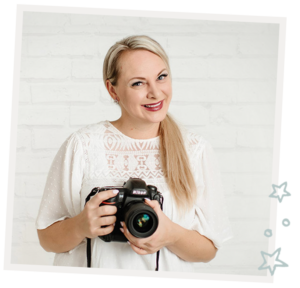
I'm
Lisa DiGeso
I’m on a mission to create uplifting online experiences for photographers ready to elevate their art, their business and their mindset.(...and have fun along the way!)

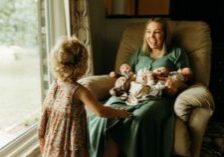
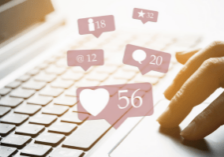
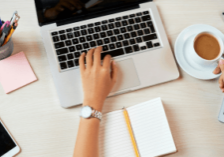
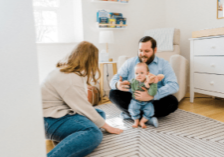
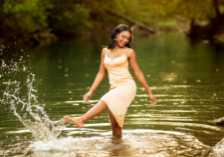

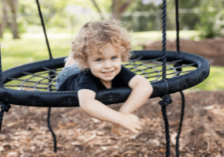
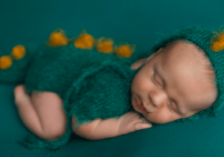
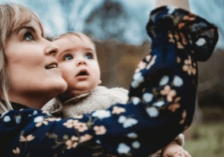
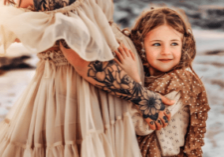
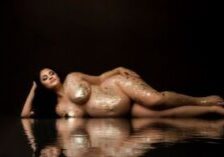
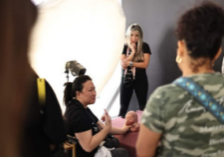
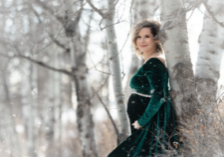

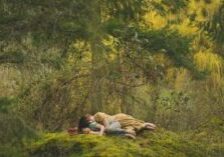
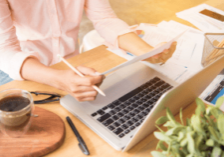
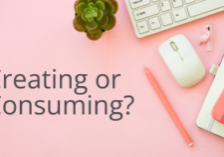
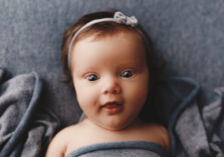
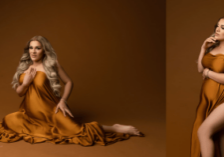
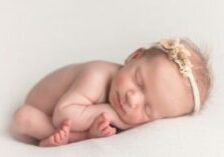
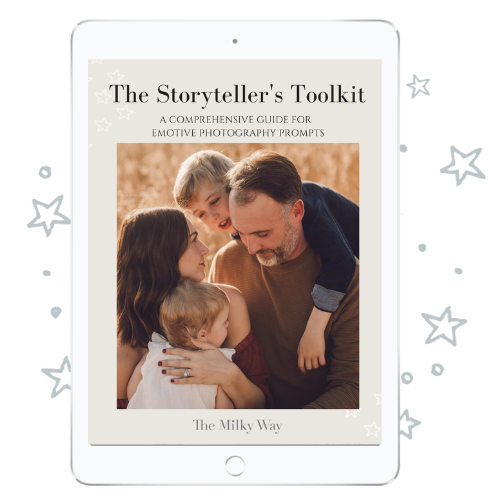
[…] recently had the opportunity to chat with Lisa from The Milky Way in this interview on The Art and Soul podcast. We talked all about building sustainable systems as a family photographer and building confidence […]